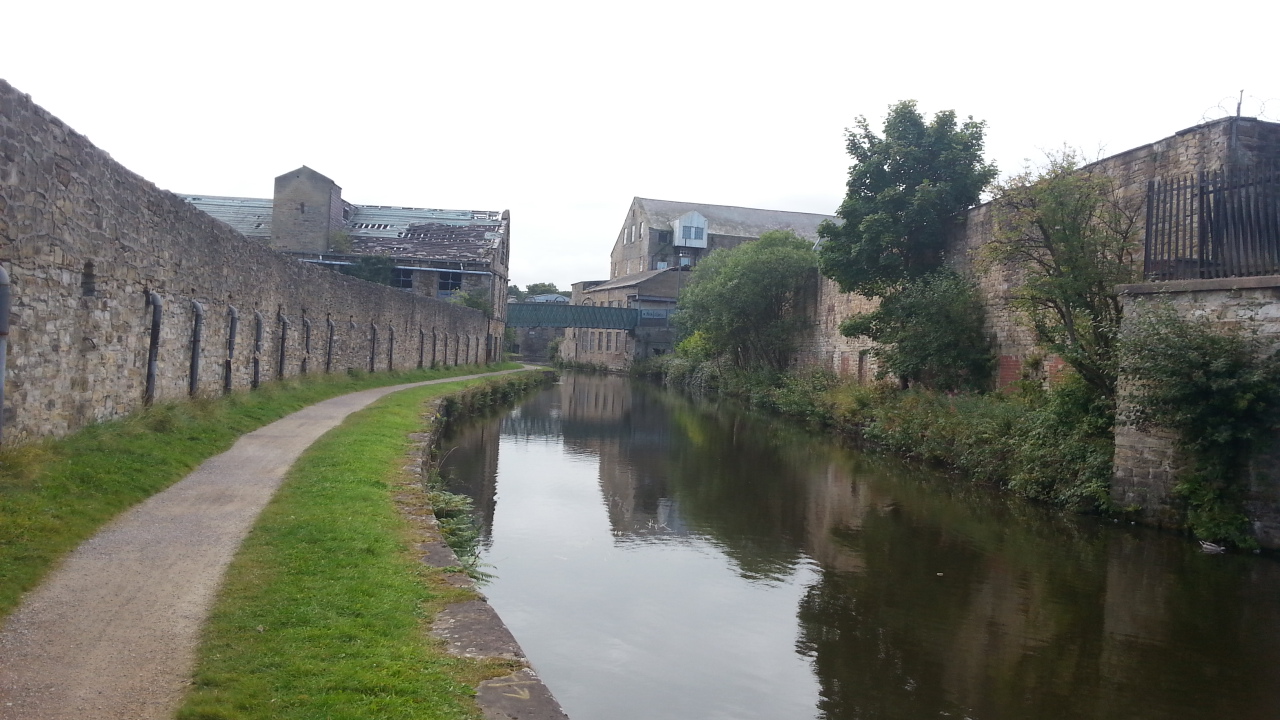MORE THAN A HUNDRED STORIES
More Than 100 Stories is a commission led by artists Sarah Butler and Nicole Mollet that explores and creatively maps the Creative People and Places programme.
Cycling the ‘Northern Belt’ | Thursday 17th September: Super Slow Way, Pennine Lancashire
I visit Super Slow Way on the day their website goes live and their first press release goes out. It’s a great contrast to Heart of Glass and LeftCoast who are mid delivery. Here it is all new – a series of new commissions announced, and community partnerships starting to come together. I spend the morning with Programme Manager Katy May, and Chrissie Tiller who is visiting to start talks about a CPD programme across the North West CPP projects. We walk along the canal in the sunshine, then have lunch in Towneley Park (in the midst of a funeral director photo shoot...). We discuss the programme; the plans for CPD; the delicate balancing act of bringing in artists from outside of the area and developing artists and arts organisations based locally; the role of the ‘broker’ – between artist, community, organisation; the nature and importance of instinct. We joke that this doesn’t feel like work, and at the same time note how valuable time out to reflect and explore is.

I’m interested in the fact that Super Slow Way has no application procedure for local organisations to apply for funds, as other CPP projects do. They ask people to approach them with ideas and develop projects from there.
I am *very* excited to visit a local tea towel factory with artist Heather Morrison who is here on a R&D visit, and the Super Slow Way team. Heather has visited a brick works and a boat builder earlier in the day – she is interested in people who make things and the creativity inherent in that process (and those people). It’s interesting, in this area of the UK so often defined as ‘post-industrial’, that she is seeking out people who make.
A conversation with local arts organisations turns to a sense of ‘hopelessness’ locally; to the powerful symbolism of derelict mills which used to provide employment for generations of families; the sense of low expectations and low ambitions of and for young people. Laurie talks about the scale of buildings inherited from a wealthier, industrial period and asks ‘What are we going to do with all this emptiness?’
And then, finally, a conversation between Chrissie Tiller, Laurie Peake and Heather Morrison about Slow Art, in the grand environs of Accrington Library. Time is such a tension in CPP, it comes up again and again: the desire to give artists, communities, work time to develop, alongside the reality of a time constrained project. It was a great conversation, ranging from the relationship between process and product; art and artistry; how art can be (re?)embedded into everyday life; artists leading by example; and touching on the importance of story as a way to engage people, relay information, enable people to connect and understand. There was also a conversation about evaluation – the impossibility (?) of evaluating the emotional impact of art; having the confidence to trust your own judgement and taste: ‘you know when something is great and true and meaningful’ said one participant.
And to end, I loved Kerry Morrison from In-Situ’s definition of good art as something that hits you in the gut, travels to your head and then comes to rest in your heart.
Some more thoughts:
- I have thought about leadership a lot this week. What difference would it make if Patrick from Heart of Glass was working in Burnley and Laurie Peake from Super Slow Way in St Helen’s? What difference does a leader make? And how does that interact with the specific contexts they are operating within?
- What do we mean when we talk about story? Which stories do we (I!) tell and how and to who?
Sarah Butler
 Sarah Butler
Sarah Butler Nicole Mollett
Nicole MollettFilter by
DATE
- July 2016 (3)
- June 2016 (4)
- May 2016 (3)
- April 2016 (1)
- March 2016 (2)
- February 2016 (2)
- January 2016 (2)
- December 2015 (1)
- November 2015 (2)
- October 2015 (3)
- September 2015 (11)
- August 2015 (4)
- July 2015 (10)
TAGS
- - No value - (14)
- bait (1)
- Batley Festival (1)
- Bentley (1)
- change (1)
- collaboration (2)
- community (2)
- Confidence (4)
- Creative Scene (1)
- cycling (3)
- decision making (1)
- decisionmaking (1)
- Doncaster (1)
- drawing (2)
- East Durham Creates (1)
- engagement (1)
- flying (1)
- Funding (1)
- Glossary (1)
- Granby 4 Streets (1)
- Heart of Glass (3)
- Hull (1)
- In My Place (1)
- landscape (1)
- language (4)
- LeftCoast (2)
- Local (3)
- Manifesto (1)
- Mexborough (1)
- Passion (1)
- People (2)
- postcards (1)
- Process (1)
- quality (1)
- research (1)
- Right Up Your Street (1)
- Ronnie Hughes (1)
- Roots and Wings (1)
- Socially Engaged Art (1)
- Spectacle (1)
- Super Slow Way (2)
- targets (1)
- The Cultural Spring (1)
- Themes (1)
- time (4)
- trust (1)
- visibility (1)







